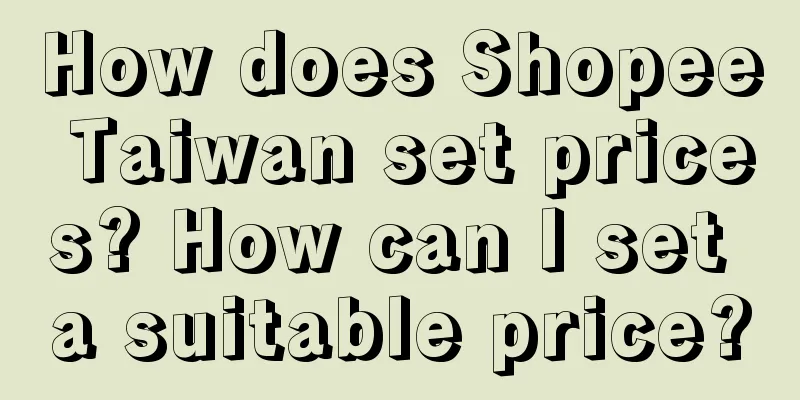In this Olympic marketing, who is more cunning, Yili or Mengniu?

Regarding the marketing for the Paris Olympics this year, I see that the topic that people are discussing the most is the secret battle between Mengniu and Yili. There is a voice that believes that Yili has successfully ambushed Mengniu again. This view does meet the expectations of many people for business wars. Everyone likes to see the plot of "taking an unconventional approach", "winning by surprise" and "winning with fewer troops". Many people laughed at Mengniu, the official sponsor of the Olympics, saying that it was stupid and had a lot of money, and had been taken advantage of again this time . After hearing these mindless voices, I decided to talk about this Olympic battle between the two dairy giants from a marketing perspective. I need to state: this is not a commercial soft article for any brand, so I don’t need to take sides. I am simply pursuing the pleasure of speaking my mind. 1. One won the battle, the other wanted to win the warIn June 2019, Mengniu, together with Coca-Cola, signed a 12-year contract worth US$3 billion with the International Olympic Committee in Lausanne, Switzerland, becoming a TOP co-sponsor. This is also the first joint global partner (TOP) agreement in Olympic history. At the cooperation level, Mengniu enjoys a number of exclusive and priority rights, including the global use of Olympic intellectual property rights, priority advertising rights, participation in the Olympic torch relay, etc. In contrast, Yili is the official dairy partner of the Chinese sports delegation, with a much lower level of sponsorship rights, and there is a clear generation gap between the two parties. However, Yili has many ways to play on social networks, and the noise is even bigger. When the Paris Olympics logo was released, netizens said it looked like Lu Yu, so Yili immediately announced that Lu Yu would become Yili Paris ambassador. It also invited Liu Dagang, who played the role of Monk Sha, to be the "Yili Paris Fashion Ambassador". This humorous and interesting approach, integrated into the context of young people, made it easier to break out of the circle. In addition, the Sanlitun early exposure incident, although it was obvious to anyone with a discerning eye that it was a marketing move, was a typical strategy of "using word of mouth to exchange for volume." Because users are in an excited mood, they will only blame Yili for being a little anxious, and will not cause a malicious public opinion incident. Therefore, Yili has gained social network popularity without losing much brand reputation. If you want to know more about Yili's Olympic marketing actions, you can search Baidu, where there are many related articles. In terms of communication volume, Yili's social network volume is greater than Mengniu's. In the 30-day WeChat index, Yili's popularity is more than 9 times that of Mengniu, and on Douyin, Yili's popularity is 3.3 times that of Mengniu in the past 30 days. From the perspective of volume, Yili is undoubtedly the winner. However, judging the success or failure of a marketing campaign simply by social media popularity is a bit too one-sided. After all, we cannot only look at the volume without considering the sales volume. At this time, we need to introduce an indicator: ROAS, which stands for Return on Ad Spend. This is a key indicator for judging the success of a marketing campaign, because it can better reflect how much sales or revenue is contributed by every penny of advertising money. Of course, we don’t have the exact investment figures for Mengniu and Yili, nor can we see how much sales the Olympic projects have brought. However, because the growth rates of the advertising expenses of the two companies are almost synchronized, we can use the annual advertising expenditures as a reference. We take 2022 as a reference. This year there will also be a sporting event comparable to the Olympics - the Qatar World Cup. Mengniu is the global official sponsor of FIFA, and most of its marketing expenses that year were invested in the marketing campaign of the Qatar World Cup. Although Yili has no official rights, it has assembled five national teams and four stars to form its own dream team, which is the same strategy as its marketing for the Paris Olympics this year. Therefore, comparing the ROAS of the two companies in 2022 can reflect the advertising efficiency of the brands. Let’s take a look at the specific expenditures: In 2022, Mengniu's advertising expenses totaled 5.5 billion yuan, total operating revenue was 92.6 billion yuan, and ROAS was 16.83. In comparison, Yili's total advertising expenses were 14.7 billion yuan, total revenue was 123.17 billion yuan, and ROAS was 8.38. In 2022, Yili's advertising expenses were 2.7 times that of Mengniu, but its revenue was only 1.33 times that of Mengniu, and its ROAS was almost half of that of Mengniu. In other words, in the year of the World Cup, Mengniu could earn nearly 17 yuan for every 1 yuan of advertising expenses, while Yili could only earn 8.38 yuan for every 1 yuan of advertising expenses. Therefore, we can draw the following conclusion: Mengniu is indeed much worse than Yili in social networking, because it has invested a large amount of budget in core equity and has done less in peripheral voice. However, whether it is the Qatar World Cup or the Paris Olympics, there is a relatively large brand leverage effect. A third party once reported that for every 1% increase in a company's brand awareness, it would take about $20 million in advertising. For marketing of major sports events, the same investment could increase brand awareness by 10%. This also explains why Yili and Mengniu are fighting for the rights of the Olympic TOP partner. The cost of guerrilla warfare on the flank is not necessarily lower than that of positional warfare. In fact, if you think about it the other way around, it can also be understood that if the TOP rights are not valuable, both parties will stop fighting and just ambush and fight guerrilla warfare. In short, rather than saying that Yili won by surprise at the Olympics, it would be more accurate to say that Mengniu ambushed Yili. 2. Why has Mengniu always been holding major global sports IPs?Why does Mengniu keep getting sponsorship rights for top global events like the World Cup and the Olympics? Isn't it better for Mengniu to learn from Yili and keep playing the edge ball? In fact, in addition to the huge brand leverage effect that the competition IP can bring mentioned above, there is another key word "going overseas". The China Dairy Association disclosed at the 15th Dairy Industry Conference this year that the domestic dairy market has fallen into a state of relative overcapacity, which has suppressed the domestic market. Nielsen data shows that in 2022 and 2023, China's omni-channel revenue for dairy products will decline by 6.50% and 2.40% year-on-year respectively. The dairy industry is about to go global, and Mengniu and Yili are both working hard to go global. Mengniu thought of its Olympic partner, Coca-Cola. Archimedes said, give me a fulcrum, and I can move the earth. For Coca-Cola, giving it a big IP can move the world. The 1964 Tokyo Olympics was a golden time for Coca-Cola's global business to take off. The Olympics was held in Asia for the first time, and Coca-Cola used television advertising to build momentum and provided Japanese-English phrasebooks for officials, journalists, and spectators. This format was adopted by many subsequent Olympic Games. After a series of operations, Coca-Cola's global influence and performance increased rapidly. In 1963, Coca-Cola could only sell 6 million boxes worldwide, but by 1965, Coca-Cola's global sales had reached nearly 20 million boxes, more than three times the amount. By 1966, Coca-Cola's overseas sales accounted for 45% of its global sales. Paul Austin, then CEO of Coca-Cola, proudly stated that Coca-Cola advertising has become "the language of the world - the lingua franca of world business. In the past, we were just an American company with branches overseas; now, we are a truly global multinational company." In my opinion, it wants to replicate Coca-Cola's Olympic marketing approach and use the Olympics as a lever to tap the global market. However, Mengniu's overseas business is not easy. The dairy industry in Europe, America and Australia is strong, and there is great resistance to reverse export to these regions. However, there are great opportunities in Southeast Asia and South Asia. In 2023, Mengniu acquired the ice cream brand Alice, ranking first in Indonesia and third in the Philippines. At the same time, it is also expanding into the Vietnamese and Thai markets. I was surprised to find that Alice is also using the Olympic global partner status to do marketing promotions in Indonesia and the Philippines. However, it is difficult to support overseas business by relying solely on ice cream and other categories. In 2022, Mengniu's overseas business revenue accounted for 4.96% of total revenue, and this proportion dropped to 4.35% in 2023, with total overseas revenue of nearly 4.3 billion yuan. It is hard to say whether Mengniu can make a comeback overseas with these major sports IPs in the future, but at least it has made a start in the Olympics. 3. Guerrilla marketing never wins the warRecently, I was a judge for the Digital England Awards and saw a lot of fantastic ideas, but unfortunately, some of the cases were just drafts. The same was true for the Cannes Lions this year. There were many fantastic ideas, but not many that could be implemented. There is a marketing concept overseas called guerrilla marketing. This marketing model was proposed by Jay Levinson, a senior marketing expert in the United States. The core idea is to spend little money to achieve great results. This concept was once popular and is also translated as ambush marketing in China. A typical marketing case is the credit card war during the 1988 Olympic Games, when Visa won over American Express and obtained the official sponsorship rights for the 1988 Seoul Olympic Games in South Korea. However, American Express wanted to attract more traffic, so it released a print ad with a photo of the opening ceremony of the 1986 Seoul Asian Games, with the title "American Express Welcomes You to Seoul". The purpose of this ad was to mislead readers into thinking that it was a photo of the opening ceremony of the Olympic Games, which caused quite a stir. Guerrilla marketing is actually quite common in China. Its synonyms are generally ideas, ambush marketing, and online hype. These ideas are very eye-catching, suitable for mass dissemination, and more likely to become topics of conversation. We have always had a myth, that is, the worship of winning with fewer troops and surprising the enemy. We always love to talk about those miracles in history, as if as long as we have enough wisdom and strategy, we can ignore the disparity in strength and overthrow the strong enemy in one fell swoop. This obsession, like a drug of love, makes many marketers indulge in unrealistic fantasies. Now is the time to break this obsession. From the burning of Red Cliff to the flooding of the Seven Armies, all of them are examples of defeating the enemy with fewer troops. However, in the face of the absolute strength of Cao Wei, Zhuge Liang's resourcefulness was in vain. My point is that marketing is past the age of gimmicks and gimmicks. What is needed is real business, relying on those basic skills that don't look so cool. Guerrilla marketing can never win a war. It is suitable for small battles, while the real battlefield is based on your marketing position, and the real war is a 1v1 competition between the two sides. I am not denying the value of wisdom and courage, but when these are exaggerated and become an excuse for everyone to take shortcuts, we should be aware that true victory is often built on a solid foundation. Marketers, get rid of your excessive obsession with surprising success! |
<<: Xiaohongshu focuses on 7 operational skills to help you avoid detours when advertising!
>>: To succeed in lifestyle e-commerce, what did this brand do right on Xiaohongshu?
Recommend
In September, brands rely on these 5 keywords to grab traffic!
How can brands use innovative strategies and event...
How many products can be listed on Lazada at most? How to list products on Lazada?
There are many cross-border e-commerce platforms a...
Which one has more traffic, Shopee or Lazada? Which one should I choose?
Cross-border e-commerce is also very promising. As...
What are the prospects of learning cross-border e-commerce? Is it easy to do?
Everyone also realizes that it is not so easy to r...
How to write a new product promotion plan on Amazon? What are the tips?
There are more and more merchants opening stores o...
What is the application process for opening a store on eBay? Introduction to the store opening tutorial
If you want to build an overseas trading platform,...
With an annual revenue of 1 billion and a monthly private domain GMV of 6 million, how does Afu Essential Oil create high-conversion private domain operations?
Afu Essential Oil, a leading domestic essential oi...
Internet celebrity soda, pour it before the hot summer comes
Exploring the rise and fall of the internet-famous...
How to recover the money when Amazon store is frozen? What is the reason for freezing?
Now there are more and more merchants opening stor...
Introduction to Shopee live broadcast support activities at various sites for Double 12
Shopee live broadcast support activities at variou...
How to check Amazon warehouse capacity? How to choose an Amazon inventory warehouse?
When opening a store on Amazon, merchants must not...
How much points will be deducted from sellers on Amazon Japan? What are the setting tips?
There are many sites on the Amazon platform, and t...
How to pay with Afterpay? How to use Afterpay?
Afterpay is an Australian payment technology compa...
What does wish merchant platform mean? What is its use?
Regarding the wish merchant platform, some people ...
Content e-commerce: Douyin, Kuaishou, and Xiaohongshu "part ways"
As content platforms move into the e-commerce fiel...









